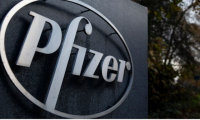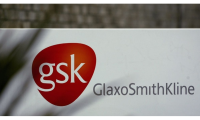-
Mpox outbreak was wake-up call for smallpox preparation, vaccine maker Bavarian Nordic says
- Source: drugdu
- 108
- May 5, 2023
-
FDA clears Pfizer’s pneumococcal vaccine for infants and children
- Source: drugdu
- 230
- May 1, 2023
-
FDA clears Pfizer’s pneumococcal vaccine for infants and children
- Source: drugdu
- 160
- April 30, 2023
-
Orbital raises $270 million in biotech’s largest Series A round this year
- Source: drugdu
- 224
- April 28, 2023
-
Appeals court rules abortion drug can stay on market — but limits access
- Source: drugdu
- 192
- April 14, 2023
-
ImmuneBridge raises funds to advance new cell-based immunotherapies
- Source: drugdu
- 116
- April 13, 2023
-
GSK outlines deal to send cell therapies back to Adaptimmune
- Source: drugdu
- 262
- April 12, 2023
-
In $2.6B cell and gene therapy expansion, Sartorius buys viral vector specialist Polyplus
- Source: drugdu
- 272
- April 4, 2023
-
The New CRISPR-Based Covid-19 Test Could Be a Game-Changer
- Source: drugdu
- 1,545
- August 26, 2021
-
GSK, Vir look beyond COVID-19 to develop new therapies for flu and other respiratory viruses
- Source: drugdu
- 330
- February 22, 2021
your submission has already been received.
OK
Subscribe
Please enter a valid Email address!
Submit
The most relevant industry news & insight will be sent to you every two weeks.













